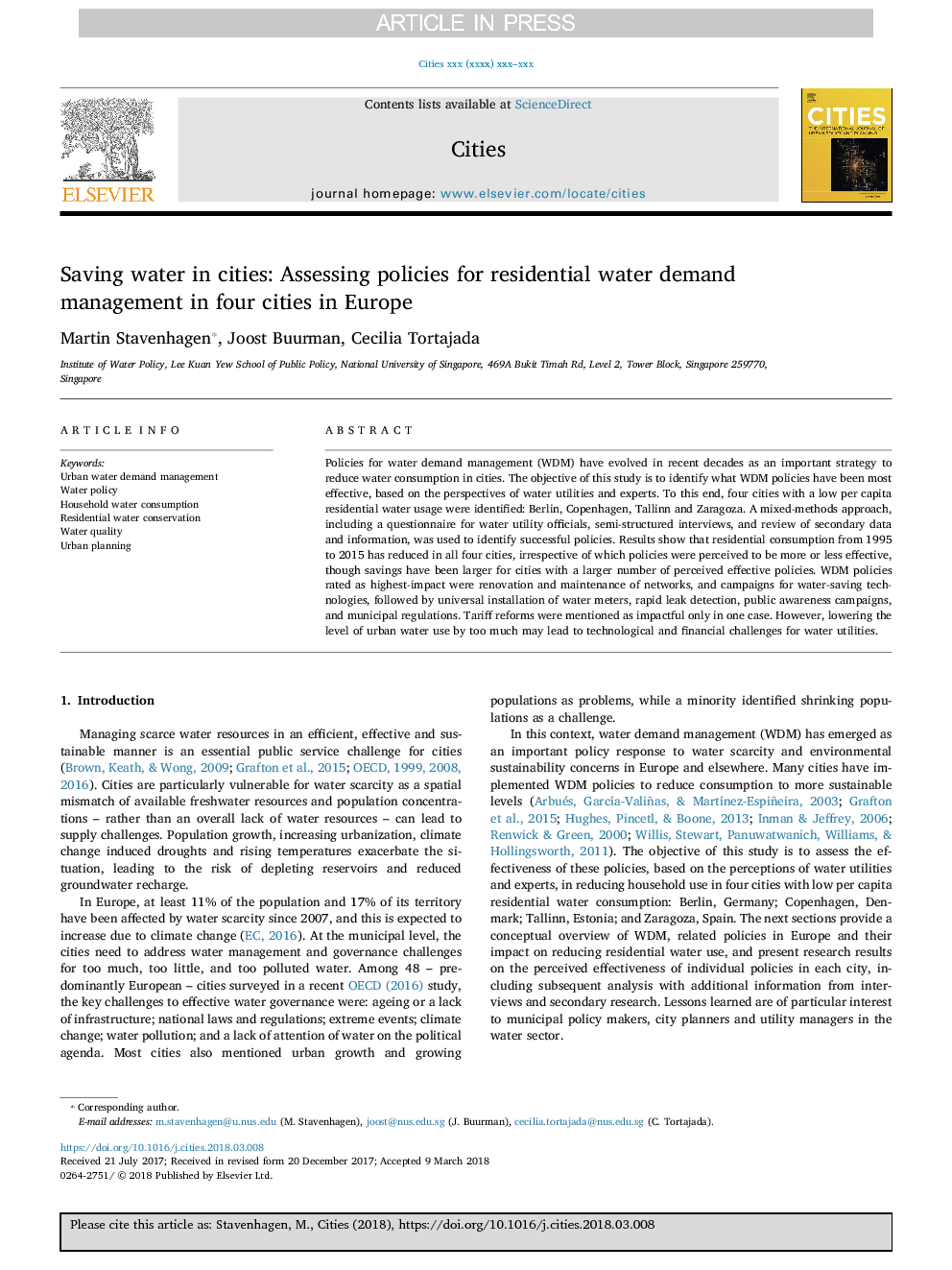ترجمه فارسی عنوان مقاله
صرفه جویی آب در شهرها: ارزیابی سیاست های مدیریت مصرف تقاضای آب در چهار شهر در اروپا
عنوان انگلیسی
Saving water in cities: Assessing policies for residential water demand management in four cities in Europe
| کد مقاله | سال انتشار | تعداد صفحات مقاله انگلیسی |
|---|---|---|
| 96083 | 2018 | 9 صفحه PDF |
منبع

Publisher : Elsevier - Science Direct (الزویر - ساینس دایرکت)
Journal : Cities, Available online 20 March 2018
ترجمه کلمات کلیدی
مدیریت تقاضای آب شهری، سیاست آب، مصرف آب خانگی، حفاظت از آب های اقامتی، کیفیت آب، برنامه ریزی شهری،
کلمات کلیدی انگلیسی
Urban water demand management; Water policy; Household water consumption; Residential water conservation; Water quality; Urban planning;

